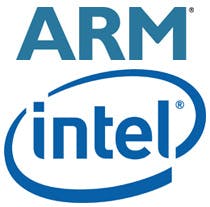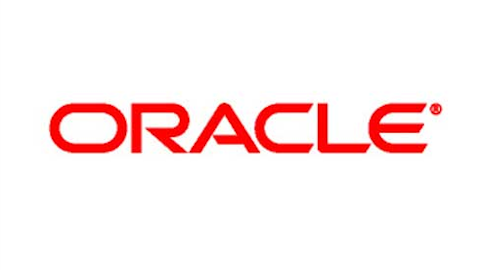Intel Corporation (NASDAQ:INTC) has dominated the microprocessor industry for two decades. Now there are rising fears that Intel may have trouble competing with emerging processor design firm ARM Holdings plc (ADR) (NASDAQ:ARMH), whose chipset designs have become dominant in mobile.

There is evidence that ARM-based tablets are cannibalizing PC sales, which in turn has pressured Intel’s processor sales. ARM has been highly successful in chips for mobile devices and tablets because of the low power consumption of its designs, something that Intel has been unable to match despite being able to offer higher processor performance.
Nonetheless, the Atom processors are becoming much more competitive in power efficiency, which should allow Intel to achieve more design wins in tablets and smartphones, and ultimately encroach upon ARM’s turf in the next year or two.
Also, Intel also bolstered its capabilities as a chip supplier for mobile devices when it bought Infineon’s IFNNY wireless chip business in 2011. More recently, the firm scored a key design win when Samsung decided to use Atom for the 10.1-inch version of its Galaxy tablet.
ARM holds an extensive library of microprocessor intellectual property, and has particular expertise in low-power, high-performance chip architectures. It’s IP is the backbone of most processors used in handsets and mobile devices today, and strong tailwinds from the shift to higher-end smartphones and tablets should bode well for ARM in the years ahead.
ARM essentially develops the blueprints that allow a variety of the world’s leading chipmakers, such as QUALCOMM, Inc. (NASDAQ:QCOM), to design and actually manufacture many of its semiconductors. ARM’s IP is the solution of choice for processor chips used in the handset industry, where low power and longer battery lives are critical factors. Intel is working hard to get into the mobile market, and it faces some long-term competitive obstacles against Qualcomm in the chip making market.
Qualcomm displaced Intel as the wireless baseband chip provider in all of Apple’s iPhone 4S and 5 devices, which should drive higher chip sales in the years ahead, and also give the Qualcomm tremendous diversity to Apple, Android, and Windows Mobile devices.
Qualcomm’s design win in many of Samsung’s upcoming Galaxy S4 handsets gave the company a shot in the March quarter, and will contribute to solid revenue in the current quarter as well. Meanwhile, licensing revenue, or QTL, was up 17% sequentially.
On the other hand, the recent weakness in the global PC market has put pressure on demand for Intel’s processors, and it showed in its first quarter report.
No surprise in Intel Corporation (NASDAQ:INTC)’s and ARM Holdings plc (ADR) (NASDAQ:ARMH) first quarter reports
Intel saw headwinds from continued softness in PC processor demand, as well as first quarter seasonality. Revenue was $12.6 billion, down 7% sequentially, and a decline from $12.9 billion a year-ago. In Intel’s PC processor segment, sales were $8 billion, down 7% sequentially, and down 6% year-over-year.
ARM Holdings reported strong first-quarter earnings and gave investors a solid second-quarter outlook. I believe that the company’s stock price reflects overly optimistic assumptions about long-term royalty growth, particularly from PCs and servers.
ARM’s revenue for the March quarter was GBP 170 million, up 4% sequentially and up 29% from the year-ago quarter. Processor licensing revenue was GBP 52 million, up 26% from the year-ago quarter as ARM continues to strike new IP deals for its big little technology, advanced Cortex-A53 and A57 processor cores, and Mali graphics IP. Processor royalty revenue was GBP 80 million, up 37% from the year-ago quarter, thanks to healthy shipments of processors using ARM’s Cortex-A and Mali IP during the seasonally strong December quarter. In turn, ARM earned a hearty 38% operating margin this quarter, up from 35% in the December quarter.
Conclusion
1). Because ARM’s IP is widely available to all licensees, the company is only able to capture a small part of the value pie because its IP does not offer its customers much differentiation.
2). ARM’s physical IP division has been a drag on the firm’s overall profitability and it could take some time before the division contributes materially to ARM’s bottom line.
3). Intel is striving to reduce the power consumption needs of its x86 architecture via its Atom chips, in turn becoming a more credible threat to ARM’s ultra-low-power architectures in the mobile chip market.
4). Although ARM will benefit from greater, more-advanced chip content in smartphones in the near term, its customers will probably see price declines over time as the smartphone market matures.
Perhaps more important, ARM still has plenty of room to see explosive growth from the mobile end market in the years ahead. Higher-end smartphones require greater, more advanced semiconductor content, which allows ARM to earn three to five times greater royalties from the sale of a smartphone than a basic handset. I don’t see the shift toward smartphones slowing anytime soon, and I expect ARM’s IP to continue to make these all-in-one devices possible.
All in all, ARM may generate hefty profits if these markets take off in the years ahead, but the firm’s profitability may also flat line or come crashing down if the firm fails to live up to these lofty expectations.
Ahsan Aslam Khan has no position in any stocks mentioned. The Motley Fool recommends Intel. The Motley Fool owns shares of Intel.The article ARM Still Flexing; Can Intel Muscle In? originally appeared on Fool.com and is written by Ahsan Aslam Khan.
Ahsan is a member of The Motley Fool Blog Network — entries represent the personal opinion of the blogger and are not formally edited.
Copyright © 1995 – 2013 The Motley Fool, LLC. All rights reserved. The Motley Fool has a disclosure policy.




